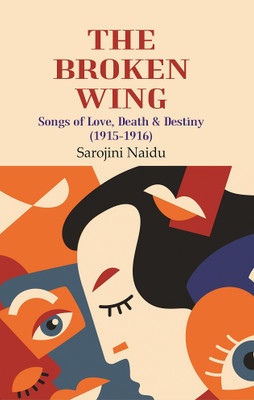The Broken Wing: Songs Of Love, Death & Destiny (1915-1916)(Paperback, Sarojini Naidu)
Quick Overview
Product Price Comparison
About The Book : The Indian woman of today is once more awake and profoundly alive to her splendid destiny as the guardian and interpreter of the Triune Vision of national lifeŌĆöthe Vision of Love, the Vision of Faith, the Vision of Patriotism. Her renascent consciousness is everywhere striving for earnest expression in song or speech, service or self- sacrifice, that shall prove an offering not unworthy of the Great Mother in the eyes of the world that honour her. Poignantly aware of the poverty of my gift, I still venture to make my offering with joined palms uplifted in a Salutation of Song. About The Author : Sarojini Naidu (1879ŌĆō1949) was an Indian political activist, feminist and poet. A proponent of civil rights, women's emancipation, and antiimperialistic ideas, she was an important person in India's struggle for independence from colonial rule. She was also the first Indian woman to be the president of the Indian National Congress and to be appointed as governor of an Indian state (United Provinces). Naidu's literary work as a poet earned her the nickname the "Nightingale of India", or "Bharat Kokila" by Mahatma Gandhi because of the colour, imagery and lyrical quality of her poetry. Naidu began writing at the age of 12. Her play, Maher Muneer, written in Persian, impressed the Nizam of Kingdom of Hyderabad. Naidu's poetry was written in english , and usually took the form of lyric poetry in the tradition of British Romanticism, which she was sometimes challenged to reconcile with her Indian nationalist politics.She was known for her vivid use of rich sensory images in her writing, and for her lush depictions of India. She was well-regarded as a poet, considered the "Indian Yeats".


